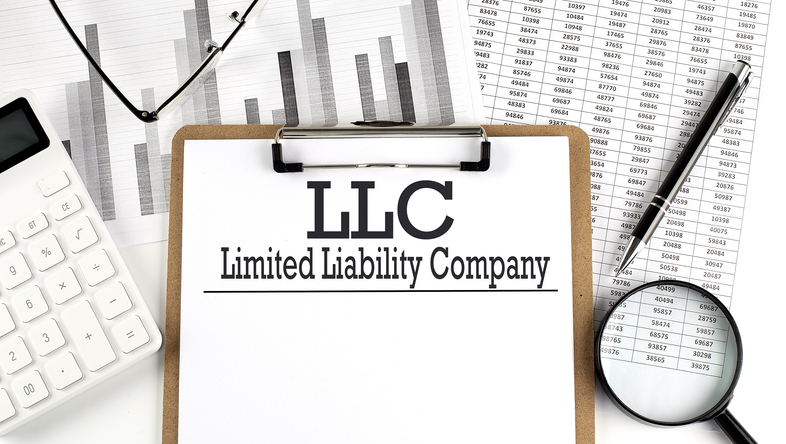What is a Limited Liability Company (LLC)?
Posted June 23, 2023
A limited liability company (LLC) is a hybrid business structure that combines characteristics of a corporation and those of a partnership or sole proprietorship. Owners of LLCs are referred to as “members,” and may include individuals, corporations or other LLCs. When a business owner considers forming an LLC, they need to be aware of the structure’s advantages and disadvantages. This article provides an overview of its pros and cons. Read on to learn more.
 Advantages of an LLC
Advantages of an LLC
Structuring a business as an LLC offers several advantages, including:
- Personal asset protection—A major benefit of the LLC structure is that it offers business owners personal asset protection. This means if the business faces a lawsuit, the owner’s personal assets—such as bank accounts, cars and homes—are generally safeguarded from any judgments against the business. However, this protection is not absolute. A judge’s ruling can “pierce the corporate veil” in certain situations (e.g., if there’s no clear separation between personal and business transactions or members engage in fraud) and place members’ personal assets at risk.
- Federal tax flexibility—An LLC offers its members the option of how it would like to be federally taxed. Members can choose to be taxed as a sole proprietorship or partnership or as a C-corporation or S-corporation. This flexibility gives members the ability to decide the taxation approach that is most suitable for their business.
- Easy to set up—LLCs are relatively easy to set up and run in comparison to other business structures. Starting an LLC typically involves registering a unique LLC name with the state, selecting a registered agent, filing articles of organization and obtaining an employer identification number. LLCs may also need to write an operating agreement and open a business checking account. Once established, LLCs do not require an annual shareholder meeting or a board of directors. Additionally, members can manage an LLC themselves or hire outsiders to do it.
- Versatility—LLCs allow their members to be flexible in how they organize the business and share its profits. There is no set number of members an LLC must have, and LLCs may afford members flexibility to determine how to share the business’s profits in accordance with IRS regulations.
Disadvantages of an LLC
While an LLC offers advantages, there are also drawbacks to consider, including:
- Expenses—LLCs typically cost more than a sole proprietorship to set up. Since LLCs are registered at the state level, fees and state taxes vary. The formation process typically involves expenses and once established, LLCs may have to pay annual fees and taxes.
- Lack of corporate stock—Since LLCs don’t issue stock like a corporation, transfer of membership may be complicated. In some states, if a member leaves an LLC, the LLC may be required to dissolve unless its operating agreement states otherwise. The lack of available stock may also make it more difficult to find outside investors.
Choosing to Start an LLC
Determining if an LLC is the right structure for a business requires weighing its pros and cons and comparing alternatives. Seeking guidance from an attorney may also be beneficial as LLC regulations vary by state and all businesses are unique.
For more small business insights and risk management guidance, contact us today. At Horst Insurance, we are Protecting What Matters to You.

 Advantages of an LLC
Advantages of an LLC